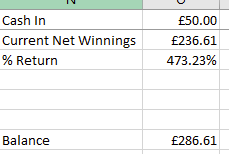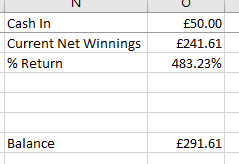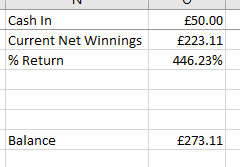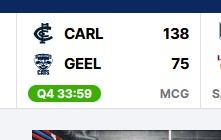-
Posts
7,165 -
Joined
-
Last visited
-
Days Won
48
Content Type
Profiles
Forums
Gallery
Downloads
Blogs
Events
Our Shop
Movies
Everything posted by Jerry_Atrick
-
That tells me you do not understand First Nations' peoples culture. As part of a society, whichever, and whenever one arrived (especially of one's own choice) you take the liberties with the obligations (or to put it crudely, the good with the bad). To take your logic further, your taxes shouldn't have to pay the debt incurred from Aussie forebears before you arrived. Is that your argument? Or is it only applicable as an argument when it comes to First Nations peoples, that it applies? [Edit after typo fixes.. but I am sure there is at least one remaining]. This is the sort of poop of our derision of immigrants of a certain religious pursuasion.. They have to accept Australia, and not try and make Australia a copy of their culture.
-
When Corwn Casino forst started, I recall a woman leaving her toddler inside who dies (let me look it up). Do you know, I can't find it, so maybe it was someone who did throw a roock through the window. Let me look that up. (https://www.theage.com.au/national/court-lets-casino-pair-keep-child-20030902-gdw9rl.html). It was 20 years ago and few few Grange's as well as many lesser wines have taken their toll (not Toll!) This is not an EV issue - it is a Tesla, or more generically, an engineering issue. There are many ICE cars today that have all sorts of automation. Traditional car designers tend to have more experience in the safety systems that get people out of trouble.
-
You laugh, but I had exactly the same issue two weeks ago. I was staying at my usual pub when in London for work (https://www.dukesheadrichmond.com/). There is enough space for three cars in the car park.. and I have been told it is OK for me to park there. The landlord knows I leave by 5am latest and he knows my car, and obviosuly my room. Normally I don't park in the car park as between 6:30pm and 6:00am, parking is free in the meter bays and there are plenty around (the rest is residents permit parking, 24 hours). However, as there was some rugby thing on, the place was parked solid. I woke up and was ready to go at about 4:55 and there was this black beemer not parked in the spare spot next to me, which it could have got into, but parked right behind me and half hanging out the drive. Finally, at 6am, the morning staff arrived, and I asked them to contact the owner of the car and get the owner to move it. It was the landlord's (or guvnor's) car! He complained about me waking him up at 6am.. I think he had a good night at the races at Kempton Park, probably drove back "slightly" over the limit (since Theresa May got rid of 20,000 police officers, road rules enforcement has taken a hit) and just went to bed. Hang on, need this fleeting thought thread.. or is a fleeting thought a random thought.. (and yes, I know we are on the silly pictures thread).
-
In the old days, all we had to worry about was drunk drivers. These days, we have to worry about stoned drivers. I remember an old joke when we were about 18 (4 0 years ago), "why drink and drive when you can take drugs and fly?". (for the record, I have never taken an illegal drug). I have no idea what it has to do with the above two posts, but that memory (is a conscious memory a thought?) just popped into my head.. Maybe we need a fleeting thoughts thread.
-
Here is the 10 Yr history of spot electricity prices and note there was only one period they went over $200mw/hrs. Despite being well under that, generators generally are still making money. https://www.energycouncil.com.au/analysis/spot-market-prices-and-revenues-ten-years-of-historical-spot-prices/ Couple of other things. First he tries to dismiss the generation cost in favour of to consumer cost, but the only real difference apart from the amount of power if one goes for bigger reactors of course is the fuel and quality control of the kit.. so it really is a bit of a furphy.. with the exception of the percentage of capacity operation. The second is more subtle. I find when experts spend more time being condescending and less time talking objective and as full set of facts as they can get in the time, they are pushing an agenda and not having a debate
-
A medical reactor researcher would have just as "little" generation costing experience as the CSIRO. As @Litespeed says, he is full of BS, just talking about 1/2 of the issues. For example, the nuclear tech regulations are [retty well homoginised. However, there is this thing called seismic activity, which can wreak havoc on them. Also, there are local environmental issues that have to be taken into account. I worked in Abu Dhabi (part of the UAE) for 2 weeks with their oil company and that was enough for me to observe they don't pay too much attention to their land-based environmental impacts.I would hope Australia, like the others, pay a bit more attention. Also, they don't have the planning regulations we do.. and these also have to be respected in, what he calls a modern democracy. Surely, the rule of law counts for something? He is right - the operational cost to generate from is lower than fossil fuels and its capacity is higher (one of the reasons the operational cost is lower than fossil fuels). But it is certainly not the case against renewables. However, this ignores a couple of other costs. Firstly, the amortisation of the initial build cost over the lifetime (plus extensions), as well as further capital expenditure which is not considered operational cost to re-engineer parts of the plant as more eficient ways of doing things and better technology comes along in non-reactor plant. This can be anything from the shafts to clear water feed pumps. This is all capitalisable and not directly expensed (but is over a 5 year period on average). Secondly, there's this thing called decommissioning at the end of the plant life, and that can be quite a bit more than the initial build. I can't remember, but I think it is the Berrkley plant that haa had a plethora of specialist decomissioning engineering and operating firms go bust trying to manage the decom. The government has to always step in to fund it until the next player comes, and the cost increases. These days, it is at least European and US law, if not part of IAEA requirements to provide funds for decomissioning. And, it takes years. It isn't just a case of puring concrete into the core and walking away. People are still managing every decom plant. Telemetry makes it a little cheaper, but not much. Ask yourself this question - if it is that much cheaper, why do they need a c. $200 per mw/h guarantee? Why does EDF (operator of Hinkley point) require a £94 per mw/h indexed with inflation from when it was incepted guarantee. Surely they don't need it if they can produce the electricity cheaper?
-
That was an interesting article and I hope it was the journo rather than the professor himself. EVs and driverless technology are not coupled nor dependent on each other. The challenges for EVs are different to the challenges for driverless technology; the two things to over come (which is better light/contrast differentiating sensors for dawm/dusk and one would also think, night; and AI models to process data from those sensors for lane changing are all about self-driving technology. These can equally be applied to ICE vehicles, hydrohen vehcles and even pedal vehicles (well. maybe not the latter). I would have thought one of the key challenges for EVs was charging infrastrcutre and possibly charging times; and possibly electricity generation/distribution/storage over geagrpahically dispersed areas; not whether the senors for the driverless tech is working. (range seems to have been more or less sorted, at least compared to comparable ICE vehicles). And of course, the shift from purchase proce mentality to total cost of ownership mentality. And I would question if the desire is to have every vehicle on the road an EV? I am still not sure of all that energy density packed in large batteries for semi trailers and road trains, for instance. Nor am I sure it is poractical for large station vehicles where carrying spare electricity in the battery equivalent of Jerry cans (I guess they aren't on the roads normally, though).
-
.
-
This may explain some things: https://www.edfenergy.com/energy/nuclear-new-build-projects/hinkley-point-c
-
Does that justify not making things right?
-
The government offered to buy presumably at fair market values (ex works) as nowhere could I find complaints about the prices offered. But I agree, unless they waived stamp duty on new place purchased and subsidised moving costs, or included it in the offered price, it would be more difficult
-
I think the correct phrase is you don't know if you met any.. I am not sure they advertise it. The generation stealing went on for decades - 60 years is in my head but I am not sure. It was prevalent in the NT and affected almost every mob. You should read up on te three stages of Aboriginal separation, prtection, and then (white/Christian) assimilation. When you realise, the very tight traditional community bonds which is stronger than the commuity bonds we had when we were kids (and families looked after families more than they do now), you realise just how harshly they have been treated - sometimes though sheer ignorance.
-
That is precisely the point, and the legal requirement as established in the 1600s, not now. Britain could not declare NZ terra nullius, and therefore, by international and British laew AT THE TIME (and not now), they had to accord land rights and provision for the locals laws. And often that meant that if there was an action on what were after the conquest, settled ttaditional lands, then first nations peoples law would prevail.. but only to an extent. This allows the preservation oif the original peoples' cultures as well as assimilation to the modern culture. There are limits of what a Moari coulurtcan do and the punishments or direcctions it can give; it is strictly limited to cultural issues and of course, putting to death as a punishment is not an option. It does not absolve the first nations peoples from complying with the law of the land, but it gives some cultural independence. The other thing I understand is that it is not as if there is not education and information about how a pakeha may end up in a Moari court in the areas concerned. This is what has been sytematically denied of Australian First Nations peoples for generations. While native title allows parallel rights over only certain lands, they are neither primary nor does that extend to the cultural laws and rites. Yes, with a treaty (which is not the Voice, by the ay), you may end up iwith First Nations courts to hear issues arising from any exclusive First Nations lands or where there is native title, areas which are effectively the preserve of First Nations peoples, such as, I dunno, climbing Uluru. The usual punishment will be adminishment - hardly going to make a huge dent in a non-First Nations persons lifestyle. There are some breaches of sacred ground that do attract corporal and even capital punishment, but I can't see it being allowed, in the same way it is not allowed in Moari courts. So, what is wrong with self-determination and justice? How will it threaten you or divide the community? They aren't asking for a complete divide between First Nations cultures and Westminster system. but that there is space in the Australian system to allow them to practice their cultureal lives. For what it is worth, there are some things that certain sections of First Nations society are pushing for that I think is divisive. But a) it is a small section of their communities that are pushing it, and like most groups of people who are oppressed for long periods of time, they do tend to get more and more radicalised to try and get out of it. If we approach this rationally, we may just stop some of the more way-out ideas. BTW, we already have Koori courts in Vic and NSW, and I think there are others in the other states, acknowledging the deep cultural differences require a different approach. As an example, Westminster based legal systems value expediency and consultation only with legal professionals when say making peadings; First Nations peoples rely of a process of consultation in their mob, particularly with their elders (which is sort of a misnomer) and often with their wider community. Hence, they often just plead guilty to get things over and done with ASAP so they can then consult with their community - but by then it is too late. And lets not forget the great Nrothern Territory intervention by Howard because of the alleged child abuse and padophillia/incest in the NT First Nations communities. Rather than involving the community to solve the problem, they dolled out, as Bruce calls it, tough love. So much so, that they had to suspend the Human Rights legislation to allow the laws to continue. How well did that go? Well, apparently, it went a lot worse, including even greater rates of child abise, molestation and pedophillia. At least it wasn't incest, because it was tghe government employees and contractors that were systematically involved. Way to go with that tought love, hey? The reality is that the legal processes and community cultures are very different, and the inception of British law without provision for the differences between European and Aboriginal/Torress Strait Islanders culure, traditions, and laws, especially where the whole community is involved, makes it a much more extensive system of culture and integration within their societies than anything I have seen in European/Western culture.
-
I can't imagine OK was anti-voice. I have been doing a course, which has touched on the impact of colonisation on Aboriginals and Torres Strait Peoples, and what the population know is the tip of the iceberg, and only then one segment of it. There is an SBS series, https://www.sbs.com.au/ondemand/tv-series/first-australians, and although I have only watched a short part of it, it is an amazingly revealing documentary. I had to present how my knowledge of First Nations peoples evollved after the course. I opened is that it was not an evolutionary development of knowledge, but revolutionary. First nations peoples had it "relatively easy" with the British; Not if you know the massacres that actually happened: https://www.newcastle.edu.au/hippocampus/story/2022/massacre-map Quite frankly, some, like some of anyone could use tough love. But, IMHO, is totally inappropriate to solve the problem. Thee are serioud and fundamental shifts in thinking required, in the same way that the Robodebt royal commission compels us no not think of the vast majority of welfare recipients as dole bludgers and a little tough love is required. Remember, the settlement via the declaration of terra nullius was found to be a fiction in accordance with teh laws and community standards at the time. Apart from the settlemen of Australia therefore being technically illegal, it allowed the conquerors to ride rough shod overw First Nations people where they couldn't other populations where they declared conquest, for example the Moaries. The intergerneational impacts have been monumental. Call me woke if you like, but spend time researching the real issues and what the Voice wants to achieve, and you are likely to find there is a far more compelling case for it than against. One of the worst things about it, which will have a far bigger impact on Australia as a whole, is the success of Trumpism in Aussie politics. If it continues its success, well, welcome to life in Ausmerica.
-
When you think about it, the whole idea is for the wealthy end of town. These are usually financed through Project Finance; which means the bankers earn fat commissions on providing the money. The large international companies that have experience in operating nuclear facilities are likely to get the gong over local companies that have no experience, thanks to the safety concerns.. so the wealthy, most likely US operators will step in (even better because about 80% of them operate the sofware I know). The p[rofits are all but guaranteed, as they are insulated from commodities prices once built - with thge exception of course, of uranium, etc. The profits to the bankers and the corporates are all but guaranteed and will come from your pockets. Centralised pwoer generation is already a legacy technology, so it is YOU who will pay for the wealthy end of town who stand to make the most from it. Dutton and the Libs have no interest in optimising investment for the greater community.
-
As usual, there is more to meet the eye than headlines: https://www.abc.net.au/news/2024-06-21/keon-park-apartment-skyrail-station-balcony-concerns/104005800 So, it looks like it was more or less the original line that was elevated. Because it had to be elevated, it became close to the balconies, when I guess the apartment block ground floors were built with the noise (not inclduding the station announcements) was sourced at the ground in mind and probably had effective noise and privacy management included. The station was moved closer to the buildings, which is also the source of complaint. The plans were announced in 2020 and the government offered to purchase those who had bought before the plans announced (presumably for fair market value). Of the 30 that were offered, only 10 subscribed. I can understand this. The real gripe is not the fact it happened, so not that the trains and station are near them as the MSM are making out, but the government hasn't paid for extra sound proofing (e.g. triple-glazed windows), and tinted windowsa for privacy for the residence property It is not because the trains and station are so close, which is what the MSM is trying to portray. I personally think that the government should probably have stumped up the cash as a gesture of good will. The total impact to the budget would have been minimal and it would have negated most of the issues. Now, they have backed themselves into a corner where if they do, it will be considered a U-Turn, which governments hate for some reason, and residents complaints get louder. But, importantly, it would be a case of people who are not in the upper end of the income bracket having a massive inconvenience of invasion of privacy and noise polliution through no fault of their own, having them mitigated and a better quality of life.
-
... Or I sold mu soul (or sole) to him. Seriously, I am applyng day trading techniques to this - more or less. I already follow AFL, although not religioulsy. This can be deemed as research. This is the same as traders (as opposed to investors, who also do research, but not in the same way). Traders will specialise in at least an asset class (equities, FX, commodities, or fixed income) and often in markets within asset classes. Eq, they will specialise in North American Equities, Japanese Industrial Equities, Agricultural commodities, Government Denbt or European v US currencies. I specialise in AFL. People at work ask me if I will bet on the European Championships (football). No, I won't because I know nothing about them and I think to be anything other than a punter, you have to have a very good background in it. Would I bet on the BAFL (British AFL)? No, for the same reason. I am adopting a day trading approach as you can't invest in AFL games. Day trading is worried about probabilities. A day trader will worry about the probabilitiy of a price fluctuation from a previous closing price and will bet according to that. I worry about the probability of winning and bet according to that. The difference is if the price fluctates against the trade, the trader will close their position with a loss, but it will rarely be 100%. My losses are always 100% of the bet. Which comes to the overlay of Rrisk management. There are different methods. First is diversification. For me, it is basically bettoing on more than one game.. I try and bet on a minimum of 4 games, but in the bye rounds, that goes out the window. The next method is of limiting exposure to the trade. Note, I was adamant of putting £75 on Sydney before I put the bet on, but in the end, my threshold put be back to £50. The third way is hedging, which I did do for a slight cost (more on that in a bit). So, putting it together in a system means in the early days, the chances of losses are higher, but as the winnings build, you can apply risk management and some speculation with a buffer. There's nothing devilish about it. It is understanding the numbers, going eith the probabilities and managing the risks as best as one can. As in day trading there will be losses, but if you look at it over a period of time and your wins > your losses, you are doing OK. It's also about holding nerve. OK, at the amounts I am in for, there are no great losses. However. as of this week, even though my original investment was £50, I stand to lose £250. if you treat your money was what you have "earned" rather than just the original outlay, your approach remains more or less disciplined, especially risk management. Most people say, "well, I lost £50 in reality". But it is not true. If you managed to get your account to £1,000, it is yours, and you should treat any loss from that as a loss of your money. This is how firms work, too. When we set loss action trigges, they are not a loss from yesterday to today or from the amount initially invested, but a loss from "peak"; i.e. the highest amount you made on your account. That way you will exit a loss before it eats too far into profits. As I was typing this, GWS werre mounting a credible comeback. So, I put another £5 on them, this time as a speculation. It paid 46:1, so should they have won, which was looking a possibility and worth the punt. It is part of the system.. a small exposure from a safe position. I knew it was still a long shot, but the odds were worth it. As it was, Sydney managed to stop the rot enough to ensure their win. So the account at the close of this weeks betting for me is slighlyt worse at:
-
OK..this is betting.. no time for nostalgia! 😉 Scoew in the GWS v Sydney game ( @pmccarthy - you will learn some team names by the end of this). Although Sydney look like they will romp it home, you never know. So, the in-play odds are 7.5:1, so decided to place £8 on the hedge which will cover my £50 bet, but of course, cost a £28 gain on the bet to £28. Total bet value $8 even though I know one is going to lose. A 34% return should I win £20 off the total bets (Sydney) or 3.4% sould the £2 extra come home form the hedge bet (GWS), and I have no worries. If Sydney win: Or if GWS win: Still up nicely from last week. Not intending to put another bet on this weekend.... Note, Brisbane smashed Port Adeliade in Adelaide, and their latest form has them in the frame for firm favourites for future betting (just lettign you know my thinking). Unless I bet again (and I may be tempted), that will be this week done. [Edit] I wish I waited a bit; When I put the hedge on, GWS were still looking like they may be able to turn it around. Almost immediately after, they played as if North Melbourne would be favourites against them.. So I don't see a chance of them turning it around now. As it is, the in play betting has stopped..
-
-
I agree that there is a place for Nuclear. And, despite the potential downfalls, I learned a lot about how the industry on a global and nationa/supranational basis mitigate the risks. Yes, things have gone wrong, and it would be interesting to see the ecological damage per mw/h of generation between fossil and nuclear generation - I would suspect nuclear owuld be streets ahead. I know of a plant (and the protaganist involved) that almost resulted in an accident that would have shut down the industry in the UK. The fact it didn't was testament to the safety culture and redundancy in systems and supervision built into the industry, where global organisations set the bar - WANO being just one. So, the ecological disaster thing is not what I am buying into. When I started in the industry, I was, ironically, dead against it. When I finished in the industry I was all for it.. in the right circumstances. My beef with a nuclear generation plan in Australia is not with nuclear generation itself, but with whether or not it is the most applicable for a given situation.. In the days of magnox and AGRs, it was a lot cheaper to build and run; in fact there was a time in the USA where they could almost give away the electricity provided by it and still make a profit. But, as demand increases, and the need to produce more energy form the same footprint, and therefore denser/more intense reactors, the cost has gone up significantly. Certainly, the EPRs and similar designs are expensive, unreliable, and even after coming online, often are shut down for months with technical issues that develop. New technologies may buck this trent. Light water is one; SMRs is another, but neither of these are really commercially viable, yet. A company my partner works for had partnered with another company to develop an SMR, but last I heard, they had shelved it. Rolls Royce, Seimens, and I think GE as well as no doubt some Asian manufacturers are in the race. None have been commissioned yet, although I think the 2030's is when some intend to be. Of course, we can wait for fusion reactors, which are only 10 years away.. Just in case, come back to this post in 10 years time, and that statement will be as valid then as it is today.. Personally, I would live Australia to go for nukes as I would be recruited for my partner's firm and maybe set up an office there. And I have both developed the systems (so I know the tech) and led business implementations of the systems (so I know the business) of design engineering and plant maintenance - and all the supporting functions of these. Happy daze! Bit, despite this, and probably a reason I will never be a millionaire, today, we have technology in renewables and batteries that has advanced in leaps and bounds from yesteryear. So, the options for "clean" energy are far more than they were. And it is developing. Yes, despite the cost in SA, it will come down as the induustries mature. Also, if we localise our generation (home-based or at least community based generation and storage), the electricity doesn't have as far to travel, which means losses due to resistance and inversion are kept to a minimum. Which means that you don't have to put so much into the energy generation to get the same output. I haven't got the stats, but I would imagine for solar, output efficiency will be high, whereas anything mechanical in generation (including wind) is much lower - nuclear is (or used to be) 35%. A country like Australia is at the end of the day sparesely populated, although the cities are densly populated. Large centralied generation regardless of fuel source is horribly inefficient, but where are you going to site a nuclear plant close to population. Most of Australia has a perfect climate and geogrpahy. We can scale renewables far quicker than nuclear, and the capacity through the diffeent channels - and we haven't even spoke sea wave generation yet, which lets face it, there is a vast amount of energy in the seas and oceans that surround us - although I do admit, they are both eyesores and have ecoloogical consequences as well, but it all means there is a mix of renewables that should be able to supprort our energy demand in the future, even if the country went to BEV cars only.
-
The last two posts are henious crimes.. that is all I can say
-
I've trained my dog to wake up and fart to provide an excitor windcurrent to the windmill generator. He also thinks nuclear just makes sense, which makes as much sense as the above.
-

The climate change debate continues.
Jerry_Atrick replied to Phil Perry's topic in Science and Technology
Yeah, like every time you put up the evidence ususally from right wing or vested interest backed sources, and we counter with evidence from the likes of reputable agencies such as, oh, I dunno, NASA, CSIRO, and the likes. True denier stuff, if you ask me, [Edit] Moved from OME's Renno Blog












